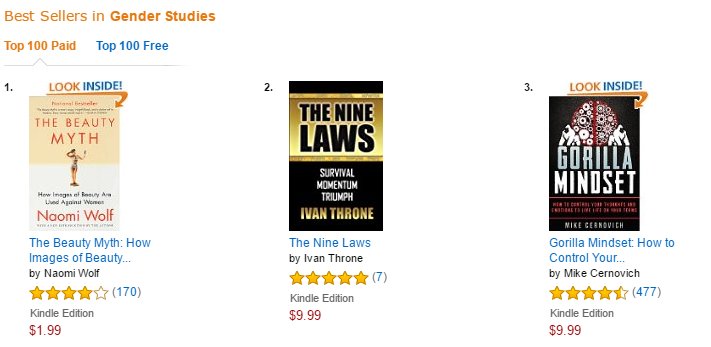Andrew Marantz wrote a surprisingly balanced article about Castalia author Mike Cernovich for The New Yorker:
Walter Cronkite was once the most trusted man in America; in 2013, according to a Reader’s Digest survey, the most trusted person was Tom Hanks. “Let’s say, for the sake of argument, that Walter Cronkite lied about everything,” Cernovich said. “Before Twitter, how would you have known? Look, I read postmodernist theory in college. If everything is a narrative, then we need alternatives to the dominant narrative.” He smiled. “I don’t seem like a guy who reads Lacan, do I?”
I’ll admit it, I laughed. Milo is obviously brilliant. Stefan is obviously brilliant. I can obviously hold my own. And Mike… Mike is considerably smarter than he allows people to assume him to be. We don’t consider him a peer because he has a sizeable following; Kim Kardashian has a following.
Around 3:30 p.m., he announced that he was done for the day. “I’ll go to the gym, relax for a bit,” he said. Before closing his laptop, he checked his direct messages on Twitter, and found a tip alleging that, in 2014, a Reddit user had asked for help removing a “VERY VIP” e-mail address “from a bunch of archived e-mail.” The tipster claimed that the Reddit user was Paul Combetta, one of Hillary Clinton’s I.T. staffers. Cernovich clicked the link to the Reddit thread and noticed that it had been deleted. “Son of a bitch!” he said. “This might actually be true.”
He returned to muckraking mode. “We’re going to make a whole new news cycle about her fucking e-mails again!” he said. “This poor fucking woman.” He started a new Periscope video. “What do you guys want to do for a hashtag?” he said. He decided on #HillarysHacker. It was trending before he finished the video. That day, more than forty-two thousand tweets were posted with the hashtag.
I returned to Cernovich’s house the next morning. By then, the Reddit story had been covered by Vice and New York, and a congressman had asked prosecutors in Washington, D.C., to look into it.
Few things make more of an impression than a called home run. This was a particularly effective demonstration of generating a media cycle because the reporter had the chance to see Mike’s process at work. He knew it was no mere coincidence that the media cycle had magically taken shape.
Shauna, of course, comes off as charming and delightful as ever. It’s a pity, though, that Marantz didn’t know that the bestselling MAGA Mindset beat Hillary Clinton’s own book in its own category of Political Leadership.
Because that wasn’t an accident either.







